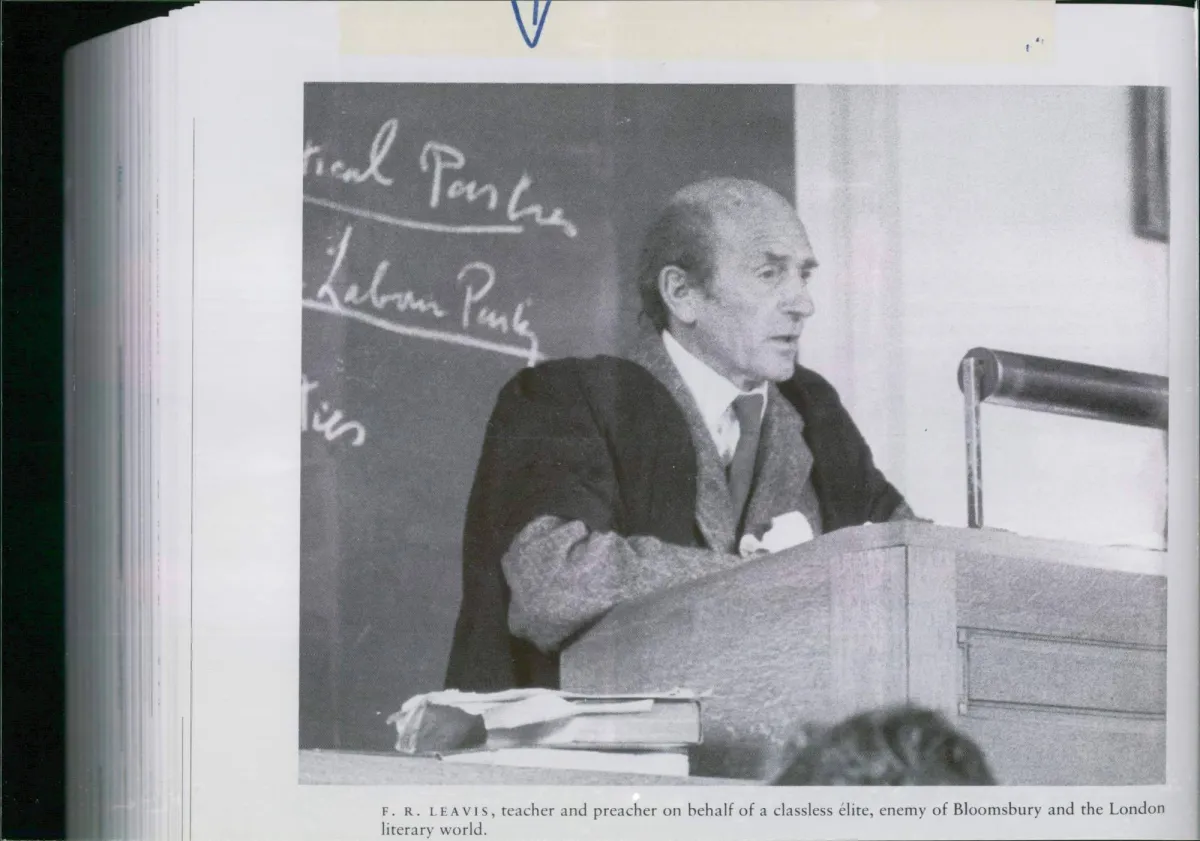Introduction to F.R. Leavis
F.R. Leavis, a renowned English critic and academic, believed that literature should not be isolated from life. Instead, it should nourish life with its civilizational and moral values. He thought that the study of literature should have an effective impact on people’s sensations, thoughts, and living standards. Leavis spent his long life spreading his ideas and establishing his critical school from his professorship site at Cambridge University until his retirement in 1962.
Early Life and Career
Leavis was born in Cambridge in 1895 and received his training at the university. In 1932, he launched his famous magazine, "Scrutiny," which continued for twenty-one years until it ceased in 1953. Today, the volumes of "Scrutiny" are considered a cornerstone of modern literary criticism in the Western world. Leavis was a product of his time, and his critique of the manifestations of life in the 20th century was significant. He was particularly angry about the era of industry and technology, which he believed had corrupted social life in England.
Critique of Modern Society
Leavis believed that the industrial era had removed organic social life, replacing it with films, newspapers, media, radio, and television. He thought that these new forms of entertainment and information had replaced traditional forms of social interaction, such as folk songs, dance, and craft products. Leavis’s critique of modern society was harsh, and he saw the effects of industrialization as a corrupting influence on human relationships. It is worth noting that Leavis’s critique was made before the advent of computers, the internet, smartphones, and artificial intelligence, which have further transformed modern society.
Influence of Thomas Arnold
Leavis was influenced by the 19th-century critic and poet Thomas Arnold, who believed that poetry should be a "criticism of life" and that criticism should play an educational role. Arnold thought that culture was the power that could protect the world against material deterioration, and he emphasized the importance of the poet’s role in society. Leavis shared Arnold’s views on the importance of literature and criticism in developing people’s moral conscience and taste.
The Role of the Critic
Leavis believed that the function of the critic was to see the poetry of the present as a continuation and growth of the past. He thought that the critic’s mission was to establish a bridge between the past and the present, highlighting the importance of human life over generations. The critic’s task was to analyze the text of poems carefully, without stating theoretical decisions or generalizations, and to base their conclusions on objective foundations related to the text.
Critical Methodology
Leavis’s critical methodology was centered on careful analysis, which he called "close reading." He believed that the critic’s task was incomplete if they limited themselves to examining individual poets as individuals. Instead, the critic should establish a connection between the individual poet and the literary tradition they belonged to. Leavis thought that the individual poet did not live outside the tradition but was an organic part of it. His critical criteria were perfect, transcendent standards that only convinced literary works, and he was known for his brutal and uncompromising criticism.
Examples of Leavis’s Criticism
Leavis’s criticism was notorious for its harshness, and he condemned many famous writers, including Charles Dickens and Virginia Woolf. He believed that Dickens’s novels, except for "Hard Times," were inferior, and that Woolf’s interests did not exceed the impressionistic reaction to life experience. Even John Milton, the renowned English poet, was not spared Leavis’s criticism, which condemned his poetry as mechanical and connected to the formulation of poetry with the work of building. Leavis’s criticism was not limited to writers; he also attacked his contemporaries, including the prominent writer C.P. Snow, whom he accused of being a banal writer who did not understand what a novel was.
Legacy of F.R. Leavis
Leavis was a great critic, and his legacy continues to be felt in the literary world. His emphasis on the importance of literature and criticism in developing people’s moral conscience and taste has inspired many critics and writers. However, his brutal criticism and uncompromising standards have also been criticized for being too harsh and dismissive. Despite this, Leavis remains one of the most important literary critics of the 20th century, and his work continues to be studied and debated by scholars and writers today. As the English critic John Carey noted, "It is a distant possibility to experience a critic: the secret police and not the poets are the authority of the unfavorable legislation in this world." Leavis’s prophecy was not optimistic, but his belief in the power of literature to change society and human conscience remains a powerful ideal that continues to inspire writers and critics today.

